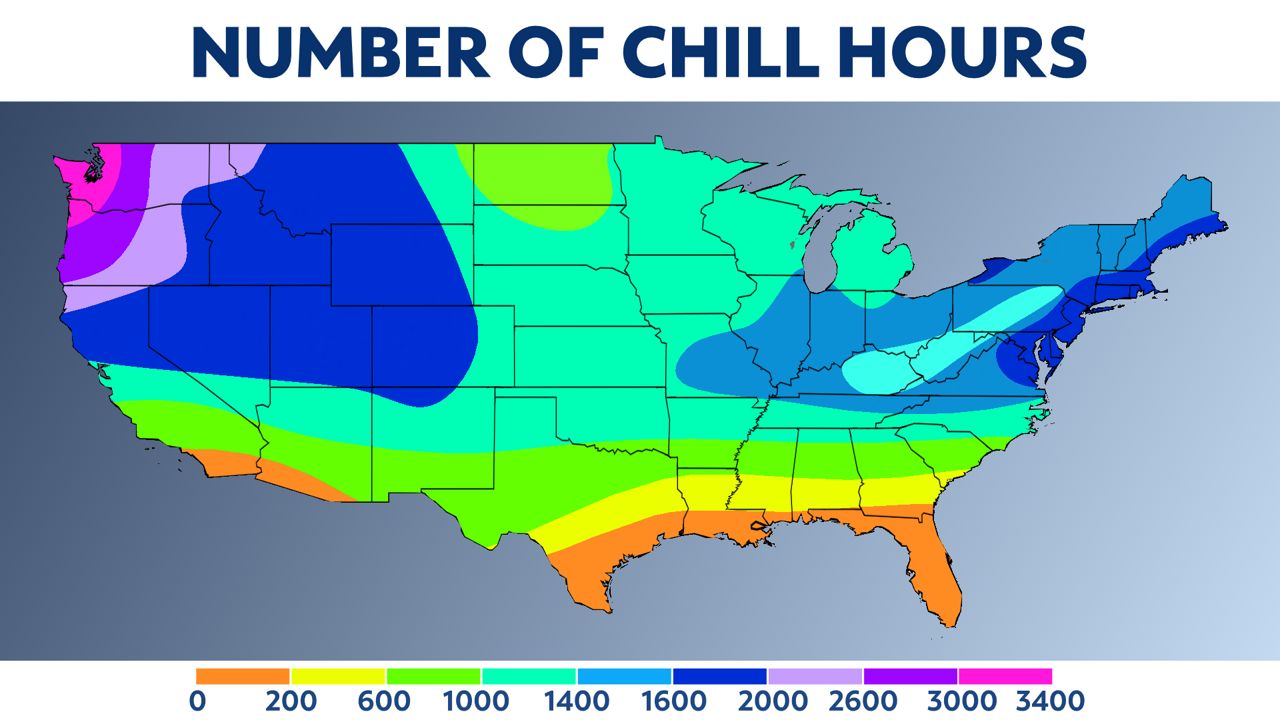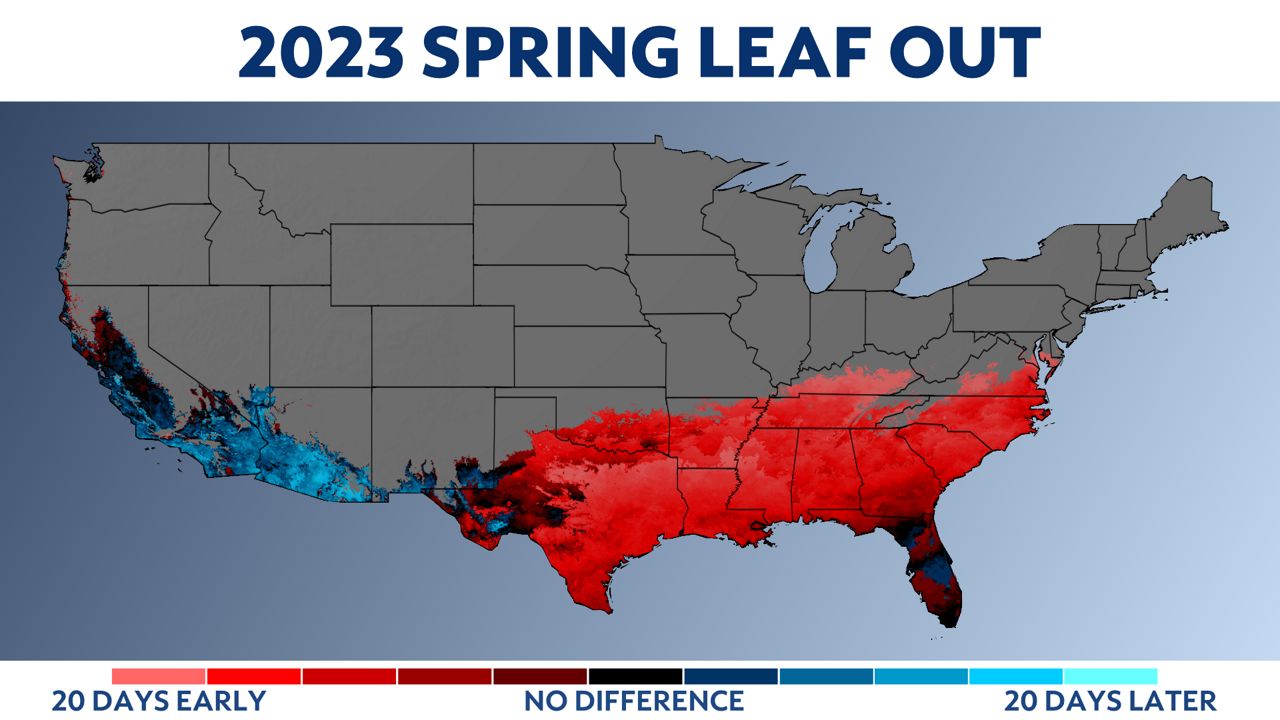With the lack of sustained cold across the country this winter, it is likely no surprise to you that plants may be eager to pop out from their hibernation.
Except for late December last year, this winter has been a breeze for you if you aren’t a fan of the cold. Many records have been broken, from the lack of snow along the northeast coast, to the warmest January on record.
Trees need a certain number of “chill hours” to break their dormancy. Chill hours refers to the number of hours between 32 and 45 degrees. Typically, fruit trees need a thousand or more chill hours in the winter so they can break their dormancy period and bloom in the spring.
That is why trees don’t burst into bloom if there is a 60 degree day in the middle of winter. Depending on the part of the country you are in, the number of chill hours will vary.

With the absence of cold air, plants and trees are starting to “wake up” sooner in the south because of the lower number of chill hours necessary to break their dormancy period.
This may sound like a good thing if you are a warm weather lover, but if cold air surges south from the Arctic, a freeze may damage the susceptible young leaves and fruit buds on trees. This may become more of a problem in the years to come because of climate change.
Spring leaf out is lifting north quickly because of the mild air. In some areas, the leaf out is three to four weeks early compared to the long-term average from 1991 to 2020.
Buds and leaves are already being spotted as far north as Kentucky. In the southwest United States, the leaf out is a little delayed this year.

With spring arriving sooner these days, it also extends the pollen season as it arrives sooner. This means if you are a tree pollen sufferer, stock up on the allergy medications sooner, rather than later.
Our team of meteorologists dives deep into the science of weather and breaks down timely weather data and information. To view more weather and climate stories, check out our weather blogs section.



